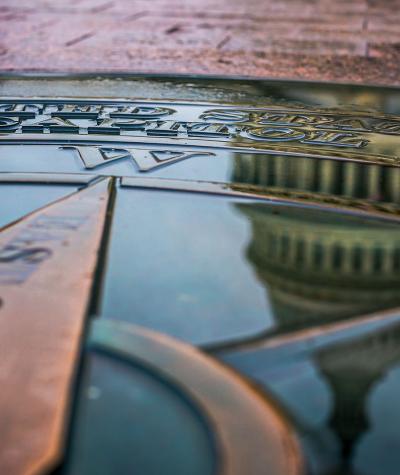As other blogs in this series have shown, the Senate Ethics Committee, the lone body in charge of investigating ethics complaints against U.S. Senators, clearly does not enforce ethics laws.
The Ethics Committee’s system of self-policing has resulted in findings of no wrongdoing in 97% of all investigated ethics complaints and failure to produce a public report in 96% of investigations.
But it does not have to be this way. Just as the U.S. House of Representatives created the Office of Congressional Ethics (OCE) in the wake of a series of ethical scandals where lawmakers were not held accountable, so could the Senate.
In creating its own independent ethics committee, the Senate should adopt the OCE’s structure and procedures for publishing investigation reports that have allowed it to uphold ethics rules and laws in the House transparently and effectively for the last 15 years.
The OCE’s structure was purposely designed to be nonpartisan, with a board appointment process involving consultation of both parties.
Board members may not be lobbyists for at least a year prior to appointment and must be at least a year out from serving in the House as a member, officer, or employee. Staff are prohibited from engaging in partisan political activity.
These restrictions keep the OCE as independent and nonpartisan as possible.
In the Senate’s current structure, sitting senators are investigating and determining whether their own colleagues are violating ethics rules and laws. It can be difficult or awkward for the senators on the committee to find a violation against their colleagues, as it may create problems for their other priorities as a senator or for their position within their political party.
By creating an office like the OCE where the structure encourages nonpartisan decision making and insulates the board and staff from the politics surrounding a complaint, investigations will be conducted more thoroughly and decisions will be made based on the evidence, rather than intrapersonal relationships or political considerations.
Specifically, the OCE has two phases of its investigative process, which must be completed within a total of approximately 90 days. The OCE’s strict deadlines for its investigative process ensure that investigations into potential wrongdoing are conducted promptly, preventing a backlog of investigations.
Once the OCE has finished conducting this review, it must send a written report of its findings, along with any supporting documents, to the House Ethics Committee, stating whether it recommends dismissal, further review, or if the vote was tied.
After the House Ethics Committee receives the OCE’s referral recommending further review, it has 45 days to publicly release the OCE’s report, except under certain limited circumstances.
Requiring reports to be released creates the transparency that the Senate Ethics Committee so sorely lacks. Investigative reports are integral to providing the public with the information about their elected officials that they deserve, so that they can make informed decisions about who represents them in Congress.
Beyond adopting the OCE’s structure and procedures, the Senate should enhance any independent ethics committee it creates by:
- Codifying the independent ethics committee to make it permanent.
- Requiring board members be appointed in concurrence with the leaders of the majority and minority parties in the Senate.
- Empowering the independent entity with the authority to subpoena third parties, as well as publish real-time information on legislators who refuse to cooperate with its investigations.
Without effective ethics enforcement, there is no incentive for senators to act in any way that does not favor their own personal interests or prioritize their donors and other special interests over their constituents’ needs. Such conflicts of interest decrease public trust in the institution.
We call on the Senate to create an independent ethics office similar to the OCE without delay, which will fulfill the Senate’s duty to oversee and enforce ethics rules and protect public trust in Congress.

